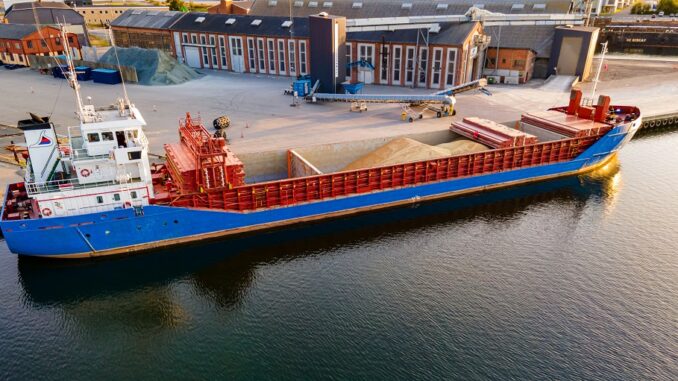
By loose definition, a broker acts as the middle person or a go-between, making them indispensable in various undertakings. In major industries where there are different actors involved, a broker connects one stakeholder to another sector player for smoother transactions.
A freight broker agent plays an important role in connecting shippers with carriers, reducing transport times, and increasing efficiency. Their main responsibilities involve working with both actors or parties. Brokers can assist shippers to find trucks to transport their load, while they help carriers get new leads for their trucks.
Within the freight brokerage service are agents who make things happen. Let’s take a closer look at freight broker agents—their main tasks, requirements, and training. If you plan on being one, this article might be of help to you.

- Freight Broker vs Freight Agent: What Is The Difference?
By all intents and purposes, these two terms are not completely different and may be used interchangeably in few cases. Technically, a freight broker refers to an agency in charge of logistics management. Freight broker agents, meanwhile, are persons who link all the players in the intermodal freight services sector.
Freight broker agents either operate their own businesses or work for a freight broker company. Simply put, a freight broker agent works for and on behalf of the freight broker.
With that out of the way, we can now focus on some more important facts about being a freight broker agent.
- What Are The Responsibilities Of A Freight Broker Agent?
As mentioned, a freight broker agent is responsible for linking shippers and transporters. By looking for qualified transporters who can haul the load and facilitate the movements, an agent ensures that the goods reach their end destination safely and on time.
As such, an agent is expected to perform several tasks, which may include:
- Contact potential shipping and transport customers
- Negotiate freight rates and costs with all stakeholders
- Look for qualified and reliable carriers
- Ensure that the client has the most effective means of transportation
- Ascertain that pickups and deliveries are done on time
- Address problems that may impact the transport of goods
- Provide sound advice to shippers and transporters on government regulations and rules on transport, storage, among other things
- Document transactions
Despite partnerships in the transport industry and other efforts to make the sector more efficient, a few challenges persist—making freight broker agents more in-demand in the industry. However, there are brand-new technologies that help freight brokers perform their duties more efficiently.
- How Does A Freight Broker Agent Earn Money?
An agent earns through brokerage fees after finding shippers and qualified carriers to complete the transaction. The said agent may be independent and earn commissions under the supervision of a licensed freight broker. This means unlimited income opportunities for hardworking agents who have enough repeat customers.
In most cases, the agent is employed by a freight brokering company with an existing and steady stream of clients.
Based on the data from the U.S. Bureau of Labor Statistics (BLS), cargo and freight agents have earned a mean annual salary of $46,070 in 2018.
- What Licenses Are Needed To Practice?
Depending on the type of cargo being transported and the extent of operations, an independent freight broker agent may need to obtain a license from government authorities. For instance, agents based in the US and involved in freight forwarding for truck carriers must secure a license from the Department of Motor Carriers Safety Association (DMCSA).
In the same vein, a freight broker is liable for transporting the load, and in some cases may be asked to provide bonds and insurances.
A fully independent agent would need the appropriate licenses, bonds, and insurance to operate legally, while handling all sales and non-sales activities such as dispatching, billing, and invoicing.
- How Do I Get Started As A Freight Broker Agent?
In the US, a high-school diploma is enough to get you an entry-level position. Most of the tasks are learned through hands-on experience. There’s a training available for freight brokering which typically lasts for 6 months. Most freight brokerage companies hire agents who have at least a year’s experience in the shipping or transport industries before them hiring as an employee or independent contractor.
That being said, individuals who have enough experience in the transportation sector and those who have gained contacts in the shipping and trucking companies are the best candidates.
Final Thoughts
Anyone interested in becoming a freight broker agent should gain experience in the shipping and transport sectors to make it in the industry. However, there are no hard and fast rules, especially for persons who are motivated and eager to learn. These given pointers can help you get started in your journey. If you want to learn more, there are numerous resources you can browse online.
